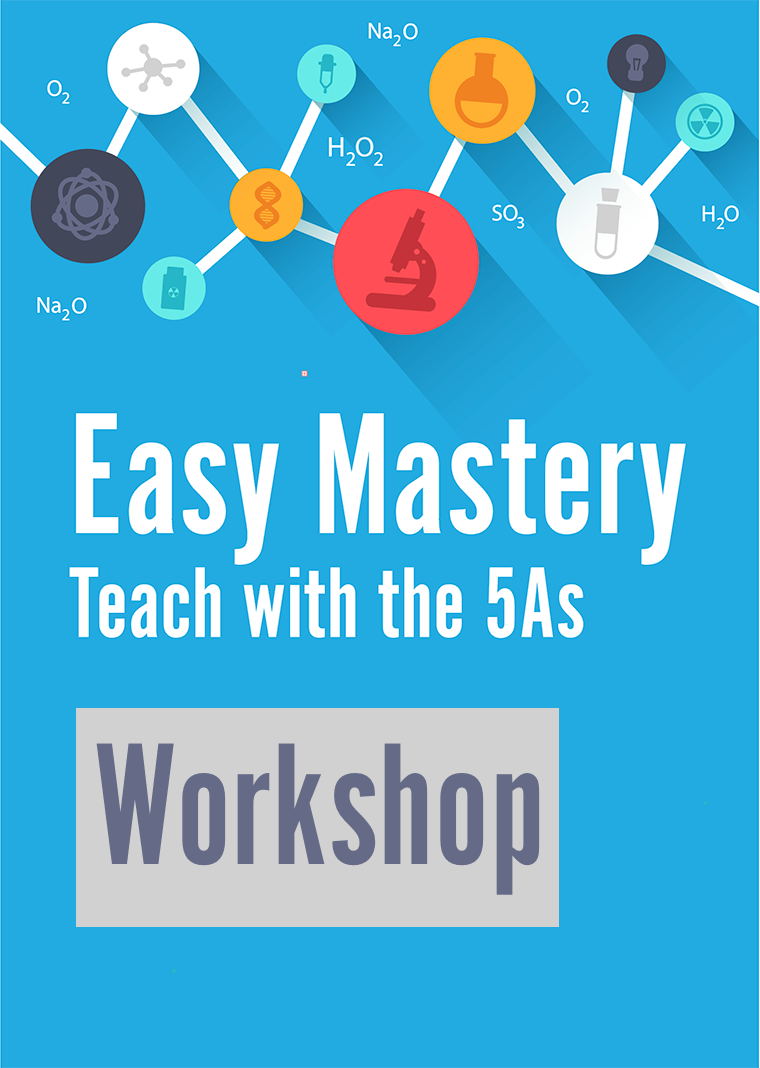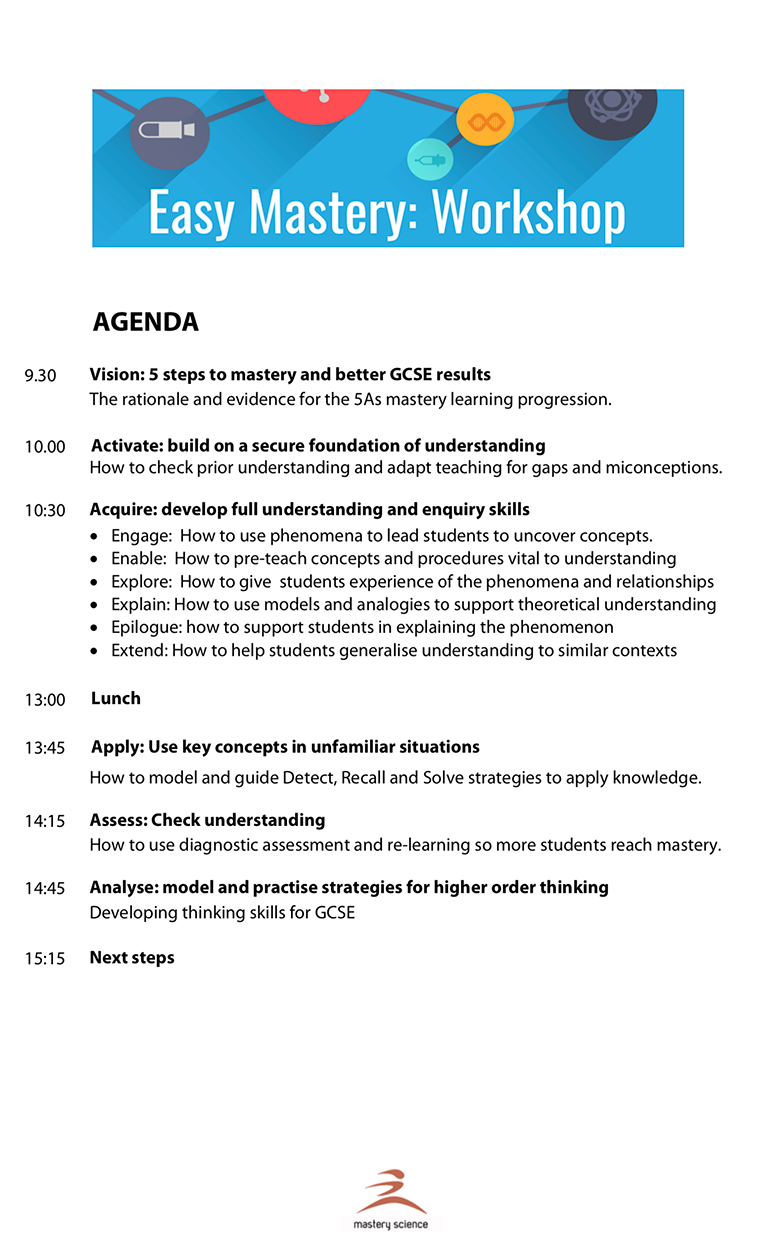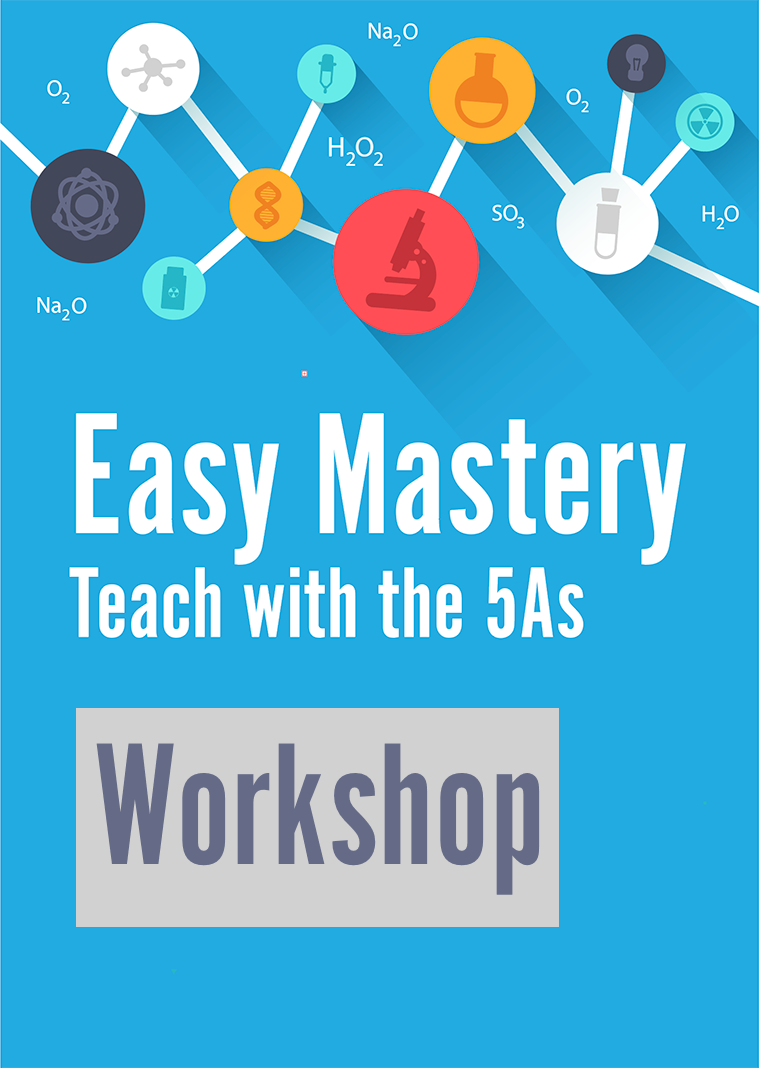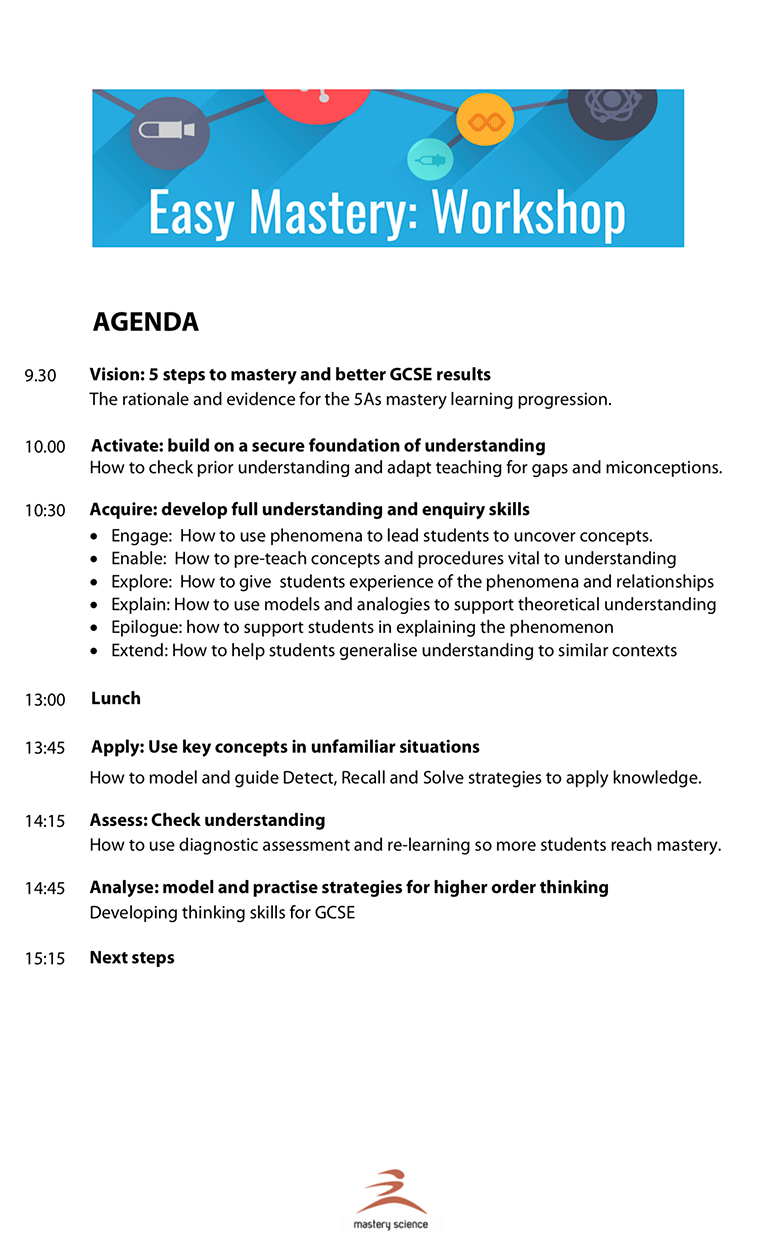Q&A
For the Year 7 Mastery Practice book:
For the Y9/GCSE Mastery Practice Book:
It was written to help year 7 students learn to transfer the scientific knowledge to unfamiliar situation. It can also be used by students in other years to improve their understanding of the fundamental concepts. Learning to apply is what will give students access to the 60% of marks at GCSE that demand more than recalling content. The book uses a research-based approach to teach students how to solve different types of problems.
The Practice Book has a chapter on each unit in the year 7 curriculum, based on a 5-year curriculum and AQA's KS3 Science Syllabus. Download the sample material to see exactly what concepts and types of problems are included.
The first strategy studente need to learn is to evaluate the problem and what knowledge is needed to solve it. 'Detect' simulates how an expert looks at a question. They make sense of the situation, look beyond the superficial details to find the deep structure This allows them to recognise this as an example of a problem type they have seen before, and recall the organised information they need to solve - key concepts. It ensures that students avoid their inclination to just look at the keywords, and dive in risking misunderstanding the situation. Detect is broken down into smaller steps, usually: draw a diagram, show values, identify unknown, decide the concept
This encourages students to bring into their working memory all their existing knowledge, externalise it on paper (to reduce working memory demands), and then home in on what's relevant to solving the problem.
The third stage of the problem solving strategy is the actual solution process using the knowledge from Recall.The Solve starts by showing how to use the knowledge from Recall and models a step by step process of moving towards a solution for the problem.We teach students how to write answers scientifically, using a variety of structures like claim-evidence-reasoning, and problem-solution, and cause-effect.
We give a big discount if you want to buy 30+ books. Please contact us.



